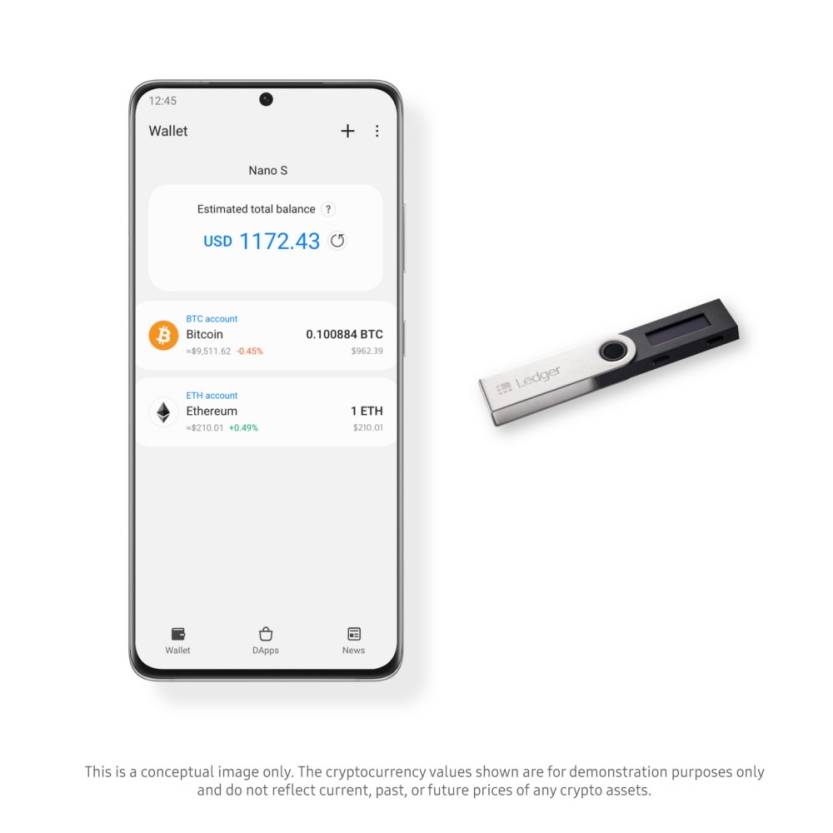Galaxy Phones Now Work With Hardware Cryptocurrency Wallets
Samsung started supported cryptocurrencies like bitcoin on its mobile phones with the Galaxy S10 in 2019. The built-in Samsung Blockchain Wallet allows users to manage and transact various digital coins, not just bitcoin — ethereum, ERC tokens, tron, and TRC tokens are all supported on Galaxy phones. But Samsung is ready to double down on crypto coins this year and support hardware wallets like the Ledger Nano S and Ledger Nano X. That's hardly a surprising decision considering the year cryptocurrencies had so far. Bitcoin and ethereum soared to record highs, taking with them most of the other digital coins, many of which have already hit new all-time highs. Additional blockchain-related phenomenons, like the increased popularity of decentralized finance apps, NFT, and the involvement of various institutions, have also propped up bitcoin and cryptos this year. All of this helped fuel enthusiasm for cryptos, increasing demand from retail investors, who have immediate access to crypto trading from their phones.
Hardware wallets like the Ledger models above offer additional security for storing cryptos, and Samsung wants users to manage their cold wallets from their Galaxy devices.
Samsung announced on Tuesday that a software update would allow users to access and process transactions on their Galaxy handsets by importing virtual assets stored on cold hardware wallets to the Samsung Blockchain Wallet. The feature is supported on most Galaxy handsets, as long as they run Android 9.0 or later.
Samsung does say that availability might vary by model and condition. Some phones might not feature the Samsung Blockchain Keystore, but they'll still work with hardware wallets by physically connecting to them — visit this link to check compatibility.

A Samsung Galaxy phone next to a Ledger Nano cryptocurrency hardware wallet.
Cryptocurrency hardware wallets like the Ledger Nano models look like USB memory sticks, as seen in the image above. They can be connected to computers during crypto transactions, allowing users to safely store their coins on the device rather than holding them on exchanges or online wallets. Hardware wallets make it impossible for hackers to steal the digital coin, as they'll require physical access to the gadget. Even if physical access is obtained, they'll have to know the device's password to unlock it.
Samsung phones have their own built-in security that protects crypto transactions. It's all part of the Samsung Knox security platform, a staple feature of Galaxy flagships for years. "The private keys used for cryptocurrency and DApps are encrypted and stored in an area isolated from the main operating system called the Samsung Blockchain Keystore," Samsung explains. "This information is further protected by a secure processor and can only be accessed by providing the asset owner's PIN or fingerprint."
Users interested in managing their crypto assets on Galaxy devices and trading bitcoin and other supported coins on their Galaxy phones should also check out Samsung blockchain pages at this link.
